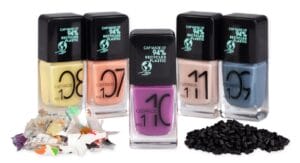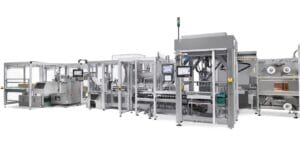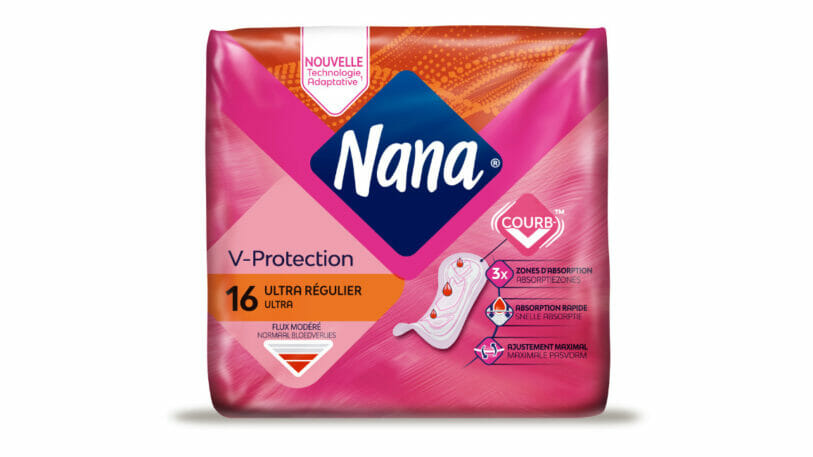Mondi, Essity and Dow have joined forces to make secondary packaging of feminine hygiene products more sustainable. The result is packaging made from recycled and balanced biomass materials that is also recyclable itself.
The renewable materials and post-consumer recycled content of which the new packaging by Mondi, Essity and Dow is made, is supposed to reduce the use of fossil-based materials. Essity’s feminine care towels were previously packed in bags that already used 50 per cent renewable materials. Extensive research and testing by Mondi however, resulted in the recommendation of a new solution that aligns with Essity’s packaging goals: to work towards 100 per cent recyclability and to use up to 85 per cent biomass, renewable or recycled material in all bags where up to 25 per cent are recycled plastics.
The new packaging contributes to these sustainability goals by using a renewable material and by-product from the paper making industry that is produced from circular feedstock based on the ISCC (International Sustainability & Carbon Certification) mass balance approach. The innovative packaging also contains mechanically recycled content from post-consumer material. Mondi worked with long-term supplier Dow and other companies along the value chain to find the most suitable resin formulation for this solution. The end result is an extruded film that is printed on and converted into a bag.
“We are excited to launch the new feminine care packaging that has a reduced carbon footprint and will contribute to our sustainable innovations. The solution demonstrates our and Mondi’s commitment to the Ellen MacArthur Foundation: to work towards full recyclability and to increase the use of recycled plastic in our packaging. The end result is eye-catching, well designed and makes a positive impact on the environment.”
Guosheng Zhang, Global Technical Innovation Manager Feminine Care
Providing the same high-level of protection as the previous alternative, the solution prevents moisture and light damaging the feminine care range, has strong sealing properties and delivers outstanding print quality to maintain on-shelf appeal for Essity’s European recognised brands, such as Bodyform, Libresse, Nana and Nuvenia.
“The challenge was to find the best combination of renewable and recycled content that maintains product quality and the production efficiency already enjoyed by Essity. We tested several options until we found the most suitable solution. Working in collaboration with Essity and Dow validates our EcoSolutions approach; we go back to the start and ask the right questions to ensure we create the best possible solution for our customers.”
Marjo Kuisma, Regional Sales Consumer Flexibles, Mondi
Source: Mondi
More packaging news

A contract with a handshake is valid
Managing director Tina Gerfer of Wilhelm Rasch Spezielmaschinenfabrik has modernized the company and successfully guided it through difficult times.

Asynchronous servo solutions for the packaging industry
From primary packaging to final packaging, electric drives play an important role. With a broad portfolio, Nord Drivesystems supports customers.

Label Durability
Labels offer many functions which can get lost due to label removal. PTS assesses labels and cardboard for durability and tamper evidence.

More design for recycling for cosmetics packaging
Packaging for decorative cosmetics is very special. The Forum Rezyklat calls for the recyclability of packaging to be taken into account when designing it.

Innovation Barometer 2024
According to a survey conducted by Aktionsforum Glasverpackung 2024 is set to be a highly innovative year for glass packaging.

Flexible packaging system for natural cosmetics
Sustainability is part of Weleda’s identity. IWK is also contributing to this with its new flexible packaging line for many natural cosmetic products.






